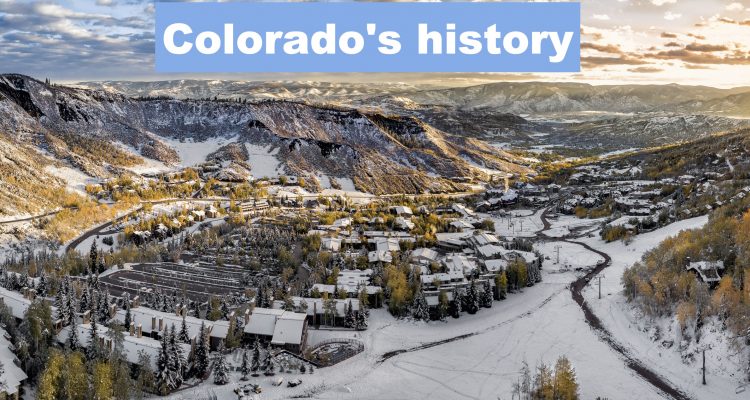Colorado has a rich and diverse history that spans thousands of years. Here is a brief overview of some key points in Colorado’s history:
Prehistoric Era:
Indigenous peoples, including the Ute, Arapaho, Cheyenne, and various Plains tribes, inhabited the region for thousands of years prior to European contact.
Evidence of ancient Native American cultures can be found in the form of petroglyphs, pottery, and other artifacts.
Spanish Exploration and Mexican Rule:
Spanish explorers, including Juan Bautista de Anza and Zebulon Pike, explored parts of Colorado in the late 18th and early 19th centuries.
In the early 19th century, Colorado was part of the Spanish colony of Santa Fe de Nuevo México. After Mexican independence, it became part of the Mexican territory of Santa Fe de Nuevo México.
Pikes Peak Gold Rush (1859):
The discovery of gold near present-day Denver in 1858 led to a gold rush in 1859. This event attracted a wave of prospectors, miners, and settlers, drastically changing the region’s demographics.
Territorial Status and Statehood (1861-1876):
Colorado became a territory in 1861, and it played a significant role in the Civil War, providing troops and supplies to the Union.
On August 1, 1876, Colorado became the 38th state in the United States.
Mining Boom and Bust:
The late 19th and early 20th centuries saw Colorado’s economy dominated by mining, particularly for gold and silver. Towns like Leadville and Cripple Creek experienced rapid growth.
However, the mining industry faced numerous challenges, including fluctuating prices and labor disputes, leading to eventual decline.
Agriculture and Industry:
In the early 20th century, Colorado’s economy diversified, with agriculture, manufacturing, and tourism becoming important sectors. The construction of dams and irrigation projects helped transform the landscape.
World War II and Postwar Growth:
Colorado played a significant role in World War II due to its military bases and training facilities. After the war, the state experienced a population boom and economic growth.
Cultural and Environmental Movements:
The latter half of the 20th century saw the rise of cultural movements in Colorado, including the counterculture movement in places like Boulder and Aspen.
Environmental issues, such as the protection of wilderness areas and the development of sustainable practices, became prominent concerns.
Modern Colorado:
Today, Colorado is known for its diverse economy, including technology, aerospace, healthcare, and renewable energy. It’s also renowned for its outdoor recreation opportunities, including skiing, hiking, and biking.
This is just a brief overview, and Colorado’s history is much more detailed and complex. The state’s history continues to evolve with new cultural, economic, and environmental developments.

















